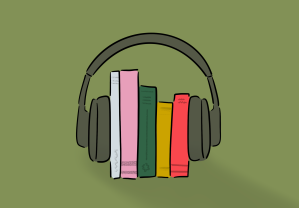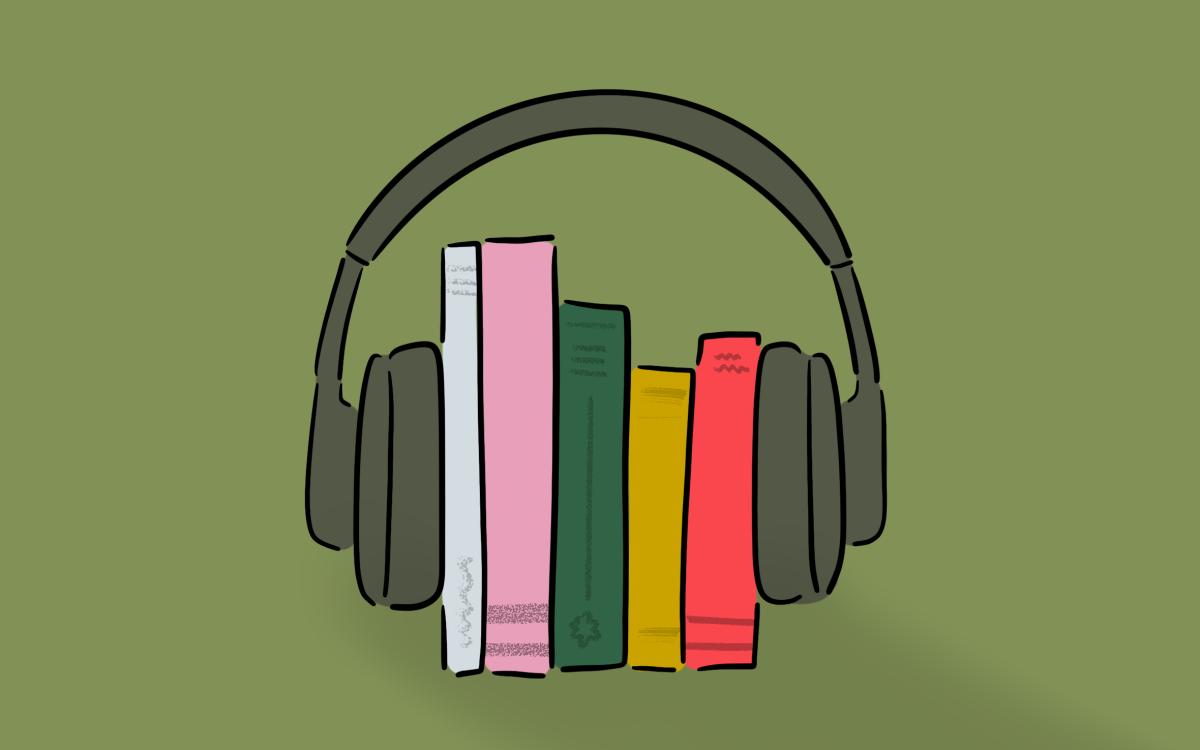
Illustration by Liz Zonarich/Harvard Staff
When to quit a book
Some give up without guilt while others insist going cover to cover. Harvard readers share their criteria.
On the matter of whether it’s acceptable to stop reading a book before its end, there are two schools of thought: one that says we must finish what we started, and one that declares that life is too short for books we don’t enjoy.
The Gazette asked librarians, a classics professor, a literature scholar, and a lecturer in English for their views on a subject that triggers fiery debates among book lovers. Although all seven readers interviewed for this story fall on the “life is too short” side of the debate, they differ on when it’s OK to give up without guilt.
Maria Tatar, John L. Loeb Research Professor of Germanic Languages and Literatures and of Folklore and Mythology, Emerita, said reading a book is a magical confluence of several factors that create a fulfilling experience, and when the delight is not there it can be shattering, if liberating.
“There’s a certain romance to reading, hence the inevitable heartache when you break up with a book,” wrote Tatar in an email. “I need both substance and sorcery, captivating content and magic on the page.”
When that magic is absent, said Tatar, readers should act accordingly, whether they’re 50 or 100 pages in. The reader’s clock is what matters, she said.
“Now, when I’m not under the spell of a book by page 50 or so, I put it aside,” Tatar said. “And sometimes, halfway through a volume, I realize that I get it and can stop reading. That happens frequently with biographies, for example.”
Reed Lowrie, head of research services at the Faculty of Arts and Sciences Libraries, a fan of crime fiction, has no problem abandoning books when authors fall back on cliches or uninspired tropes.
“The danger of sticking with a book in that genre to the end is that you can be at the mercy of a horrible plot twist that makes reading the preceding hundreds of pages seem like a waste of time (‘Her missing husband was living in a cave near her house the whole time and she had several interactions with him without realizing he was her husband’),” said Lowrie. “You should keep reading a book if you’re enjoying and/or learning from it, but if neither of those things are true, put it down and find something else to read.”
Alessandra Seiter, community engagement librarian at Harvard Kennedy School, urges readers to follow their gut. “If you feel like you’re not being fulfilled or not being engaged, or it’s not how you want to spend your time, I give you full professional permission to put the book down.”
Whether the reader is put off by the author’s writing style, a weak plot, or the pace, it is OK to drop the book, said Maya Bergamasco, faculty research and scholarly support librarian at Harvard Law School Library.
“If the book is not working for me, I stop reading it,” said Bergamasco. “I’m kind of ruthless. There are so many books in the world and so little time to read them all. If it feels like a chore, why would you put yourself through that?”
“You should keep reading a book if you’re enjoying and/or learning from it, but if neither of those things are true, put it down and find something else to read.”
Reed Lowrie
Worry less about reading from cover to cover and focus instead on the experience, said Sophia J. Mao, lecturer on English at the Department of English.
“Reading, especially today, is never a solitary activity but comes alive in the classroom, on BookTok, at events in public libraries, bookstores, and community spaces,” said Mao. “As a literary scholar and a teacher, I may guide others toward what makes a specific book notable, but I also want to know what other works people are drawn to and why. I’ll never be tired of hearing from others what they find beautiful and moving. It’s what makes reading a pleasure and a challenge to my own perspective on whether a book is ‘worth’ it.”
When books are picked up on a whim, reading a few pages should suffice, said Mary Frances Angelini, research librarian for the Extension School. “When reading for pleasure, I tend to give the book about 10 percent of the pages to hook me. If it doesn’t work for me, then I move on to the next book.”
Richard Thomas, George Martin Lane Professor of the Classics, tries to be efficient with his reading and reads reviews to choose nonfiction books, a genre he favors.
“It’s important to approach a book with some sort of knowledge about it,” said Thomas. “I tend to read a lot of reviews to make sure that the books are going to be worth my while. With recent books that have just come out, there’s obviously a lot of variation in quality, so you’re more likely to not finish your book, and that can be frustrating and alienating.”
Book lovers should not harbor guilt or agony over parting ways with a book although those reactions are plausible, said Thomas.
“Guilt and self-criticism are a natural response,” said Thomas. “I’ve never found guilt a very useful quality, so I don’t know if one should feel guilty for not finishing reading a book.”
Tatar shares that sentiment. Instead of remorse, she said, readers should focus on finding books they delight in and allow themselves to feel sad when a beloved book ends.
“Guilt?” said Tatar. “None at all, unless you are reading the book with your book club. Then you feel like a delinquent. Or, of course, if you’re reading it for a class. What’s harder for me, and what sometimes fills me with grief is finishing a book, exiting a world in which I was once immersed, living and breathing with the characters.”
Get the best of the Gazette delivered to your inbox
By subscribing to this newsletter you’re agreeing to our privacy policy




